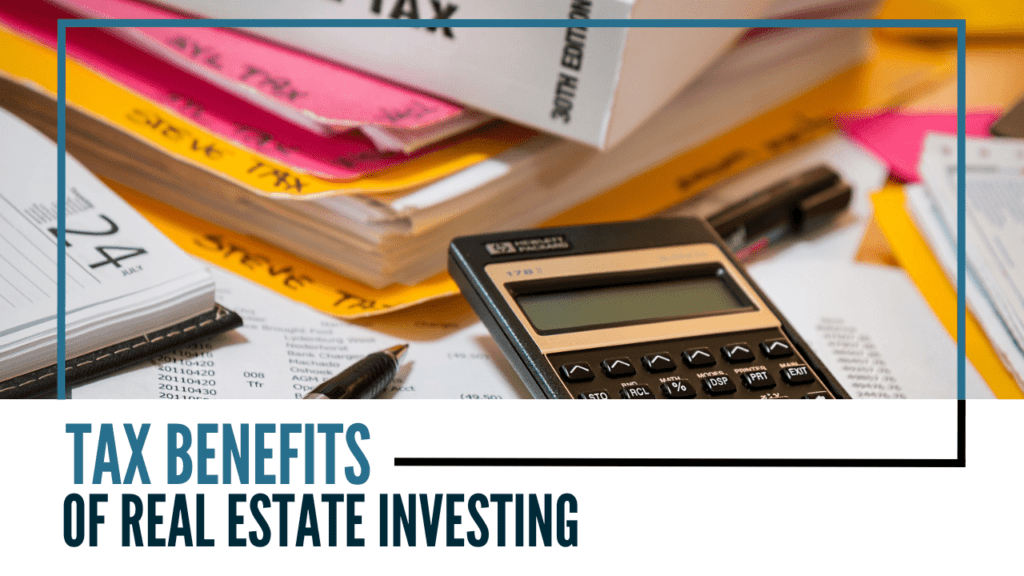
San Diego rental property owners have several tax benefits available, and you’ll want to make sure you’re taking advantage of them. While the income you earn has to be declared on your taxes, you’ll have some deductions that will offset your tax exposure.
The tax benefits far outweigh the costs when it comes to what you’re earning on your rental properties.
Let’s take a look at some of the tax benefits you can expect as a real estate investor.
Please remember that we’re providing this information as property management experts in San Diego and throughout southern California. Before you think about preparing for or filing your taxes, we would encourage you to talk with your CPA, tax accountant, or attorney for the best information and advice.
Depreciation and San Diego Rental Properties
One of the most favorable tax tools that real estate investors and rental property owners can access is depreciation. This allows you to write off part of the loss of value that any property experiences as it ages.
Every property will undergo wear and tear and general deterioration, no matter how great its condition. The IRS has established 27.5 years as the amount of time that residential property depreciations under its General Depreciation System. This is fairly generous by IRS standards, and it can help you save some major money at tax time. That’s because you’re permitted to accelerate the depreciation loss with your rental property, which will help you lower your taxable income for the year at tax time.
Depreciation of rental property is generally reported on Schedule E of a standard 1040, although there are situations in which you would use other forms. For example, Form 4562 may be used if you claim depreciation on a property in the year that you put it into service as a rental property.
To be eligible to claim depreciation as a deduction on your taxes, these conditions must be met:
- You must own the rental property for which you are claiming depreciation. There are limited exceptions to this, and you’ll need to talk with your tax accountant if you believe those exceptions may apply to you.
- The property must produce income for you, meaning you must collect rent on that property.
- You must be able to determine the useful life of your property. This will typically depend on the type of property we’re talking about. Everything has a different life cycle, or rate at which it wears down. For real estate, this is somewhat standardized and the 27.5 years applies, unless your property is subject to the Alternative Depreciation System, in which case it’s 30 or 40 years (this is rare, and again – you’ll need some solid advice from a tax expert in order to claim it).
- The useful life of the property must be greater than one year. Nothing that wears out in less than a year can be depreciated on your taxes.
If you begin renting out a home in one year and sell it within that same year, the depreciation deduction would not apply to you.
Depreciation is often misunderstood, and it’s easy to miscalculate what you can claim. Make sure you are entitled to this tax break, and talk to a professional to determine what your benefit is. You don’t want to invite an audit or a correction from the IRS.
Expenses Associated with San Diego Rental Homes
You should see your rental property as a business, even if you’re only renting out one home that you once lived in yourself. The IRS sees your rental property as a business. This is good news, because it means that many of the expenses you incur as a business owner are tax-deductible.
Here are some of the things you should always take advantage of when you’re claiming tax benefits.
- Insurance costs for your investment properties.
- Professional San Diego property management fees.
- Additional professional fees such as accounting or legal costs.
- Maintenance and accelerated depreciation on household items.
- Travel costs involved in visiting your rental properties.
These expenses must be directly related to your rental property business. The IRS allows you to deduct only the ordinary and necessary expenses for managing and maintaining your rental property, and preserving its value and condition.
Advertising a vacant property, for example, is a necessary expense, so you can deduct any advertising costs. Your landlord insurance is tax deductible and so is the cost of keeping utilities on.
Maintenance costs are deductible as well, but this can get tricky. You have to be careful about what you consider maintenance and what is considered an improvement. The costs of materials and supplies when you’re maintaining your home are deductible. Anything that needs to be done to keep your property in good condition is acceptable.
Improvements are not deductible. According to the IRS, the rental property is improved only if the amounts paid are for a betterment or restoration or adaptation to a new or different use. The IRS.gov website has a valuable section called Tangible Property Regulations – Frequently Asked Questions. If you’re unsure about whether you’re deducting a maintenance cost or a home improvement cost, you might find your answers there.
You can also deduct interest you may be paying on your mortgage, as well as any property taxes you have to pay on the investment.
Deferring Capital Gains Tax on Rental Property Sales
There’s another tax benefit that likely does not get utilized as often as it should.
It shows up when you’re ready to sell an investment property. Do you have something planned for the proceeds, and are you in full understanding of the capital gains taxes you’ll have to pay?
Well, you will be expected to pay capital gains taxes on any sale of rental property. Your investment doesn’t qualify for the gain on sale exclusion in the tax code, which is why this is one tax area where most owners lose money.
If you want to defer those capital gains taxes, you can do a 1031 Exchange.
In this scenario, you’ll sell one rental property and then use the proceeds to invest in a similar property or a series of properties. It won’t wipe away your tax liability entirely, but it will give you the opportunity to strengthen your investment portfolio and delay paying those taxes.
The 1031 is an excellent tool for investors who are ready to release one specific property but are not looking to get out of the real estate market entirely. If you don’t need the cash that a sale can produce, a 1031 exchange is ideal. However, there is a strict timeline involved, and you have to make sure the money from the sale is held in escrow, which is managed by an intermediary. These are the steps you’ll want to follow with a 1031 exchange:
- Make sure your property qualifies for this benefit. This tax program is meant for investment homes. You must exchange one income-producing property for another income-producing property.
- You’ll need to exchange with a like property or properties. The new property you choose must have a value that is the same or higher than the original property. If you walk away from the exchange with any profit, that will be taxable.
- You’ll need to identify a replacement property within 45 days of selling your original property. Then, you have 180 days to close on the new sale. The entire exchange must take place within 180 days (meaning you don’t have 45 days plus 180 days – the clock does not reset).
Always use a qualified intermediary, and don’t take any of the cash from the sale of your property. The intermediary will hold your funds until they can be reinvested in your new purchase. Ask your property managers for a referral.
Tax Reporting and Documentation
 Good records are critical when it comes to reporting and understanding your taxes. You need to make sure your system for reporting income and expenses is reliable. It must be clear, accurate, and detailed. If you’re working with a property management team, this should be provided for you. Your management company should provide monthly income and expense statements, and you should have immediate access to the reports and records you need.
Good records are critical when it comes to reporting and understanding your taxes. You need to make sure your system for reporting income and expenses is reliable. It must be clear, accurate, and detailed. If you’re working with a property management team, this should be provided for you. Your management company should provide monthly income and expense statements, and you should have immediate access to the reports and records you need.
If you’re not working with a management company, your CPA or bookkeeper can help you access the information you need. You’ll need a 1099 when it’s time to file.
Before you can deduct some of your rental property expenses, you’ll be expected to substantiate them. Keep track of all your expenses, including travel expenses and management fees. Good records lead to valid tax returns. The IRS is strict about documentation and paperwork, and you don’t want to find yourself facing additional penalties and fees just because you cannot produce the right documents.
Tax time is not always fun, and when you are working with rental properties, you’ll have to understand how your income is reported and what you can do to take advantage of tax benefits. Don’t leave any of this money on the table; make sure you’re taking advantage of all your benefits.
We’d love to tell you more about the advantages (financial and otherwise) of investing in San Diego real estate. Please contact us at Chase Pacific Property Management & Real Estate Services.
